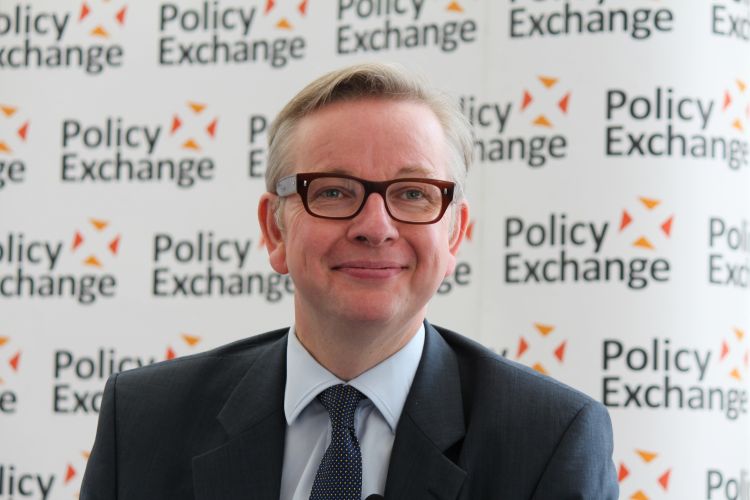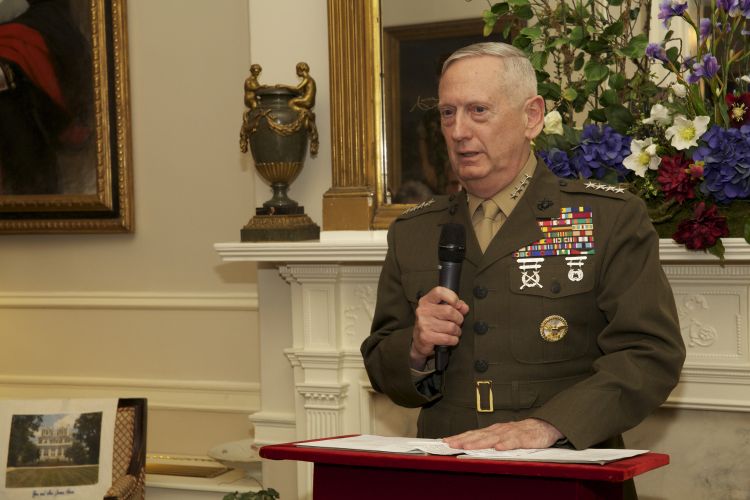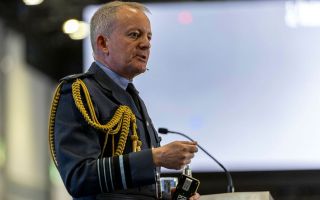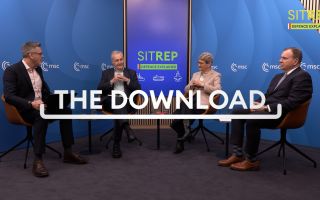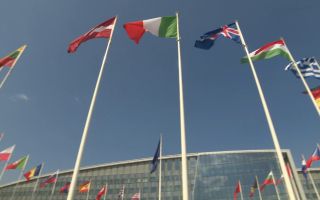President Trump: The View From Across The Pond
Donald Trump's inauguration is upon us. He will become the 45th President of the United States just 10 weeks after winning the US election.
The new administration has potential to impact the special relationship with the UK.
According to reports, Trump wishes to rekindle the kind of relationship Margaret Thatcher and Ronald Reagan shared in the 1980s.
He told Prime Minister Theresa May in a phone call that the UK is a:
"Very, very special place for me and for our country."
Trump added that it would be "the greatest possible honour" to host her in Washington "as soon as possible."
The term 'Special Relationship' has been used to describe Anglo-American association since Winston Churchill.
The Republican winner of the US election has been known to praise the decision to vote for Brexit. He called Britain "smart" for opting out of membership of the European Union. He said:
"You look at the EU and it's Germany. Basically a vehicle for Germany. That's why I thought the UK was so smart in getting out."
The President-elect has also promised to draw up a trade deal with the UK "quickly" after Brexit.
In an interview with former Justice Secretary Michael Gove for the Times, Trump said:
"Countries want their own identity and the UK wanted its own identity, but I do think if they hadn't been forced to take in all of the refugees then you wouldn't have a Brexit."
Mr Gove then went on to tell BBC Radio 4's Today programme the President wanted a trade deal "signature-ready at the earliest possible opportunity".
This was backed up by former UKIP leader Nigel Farage later saying that he too expected a trade deal within three months of Mr Trump becoming president.
Analysis by Forces TV Westminster correspondent James Hirst.
Donald Trump has little experience of international politics or military matters.
His world is buildings. He made his fortune in property. There is a glossy new American building that is almost ready to open on the South Bank of the Thames.
The new US Embassy is no Trump Tower, but it is a multi-million-pound monument to the so-called 'special relationship' between the US and UK. The choice of location, just a stone's throw from MI6, is no coincidence.
Defence and intelligence are the strongest ties that bind in the special relationship and there will be very few people on either side who want those ties loosened or damaged.
The question is will President Trump listen to those people?
He certainly doesn't seem to have any great quarrel with the UK, although his vocal support for Brexit reminds us that he is a very different character from Theresa May, who was on the 'remain' side of the referendum.
One of the people President Trump will be expected to listen to is his chosen Secretary of Defence, General James 'Mad Dog' Mattis.
His appointment has given at least some reassurance because he has worked with many of Britain's top officers through Iraq and Afghanistan, and among them he seems well-liked and respected.
Trump's enthusiasm for drawing up a new trade agreement with the UK is in stark contrast to Barack Obama, who warned during last year's referendum campaign that Britain would be at "the back of the queue" for trade talks if it voted to leave the EU.
However, the European Commission has made it clear that no formal talks were allowed before the UK left the EU.
Trump has also suggested that he might contemplate tightening restrictions on Europeans wanting to travel to the US. In an interview with the German paper Bild, he said:
"That could happen, but we'll see. I mean, we're talking here about parts of Europe, parts of the world and parts of Europe, where we have problems, where they come in and cause problems. I don't want to have these problems.”
With the UK on the brink of leaving the EU, it could be argued that it needs to reinforce its military partnership with the United States.
France and Germany are pushing for the creation of a European Army, a concept the UK has always rejected.
This could potentially cut the UK off from the US. This could then weaken Britain's security. The creation of a EuroArmy would most likely lead to military resources and money being cut from NATO and redirected to the newly-formed army.
Another consequence is that it could end the stationing of US forces in Europe.
All of this together could persuade Donald Trump, who is reportedly already criticising NATO, to leave the organisation altogether.
On the other hand, Trump has appointed James Mattis as US Defence Secretary. He has said:
"If we didn't have NATO today, we'd need to create it. NATO is vital to our interests."
Mattis retired as the chief of US Central Command in spring 2013 after serving more than four decades in the Marine Corps. He is known as one of the most influential military leaders of his generation, serving as a strategic thinker while occasionally drawing rebukes for his aggressive talk.
Pentagon Officials suggested his views toward Iran led the Obama Administration to ease him out of that post and into retirement.
Now, the British Defence Secretary, Sir Michael Fallon, has congratulated the nominee.
Sir Michael believes General "Mad Dog" James Mattis has a "deep understanding" of the military culture shared by the United States and the UK:
"The US is, and will remain, our closest partner on security and defence.
"I look forward to continuing our close co-operation to fight terrorism, deter aggression, and collaborate on innovative technologies to ensure the security of our nations."
Mattis is known for being well-liked by those he works with, but he has been subject to some controversy.
In one famous line attributed to the outspoken general from 2003, he told marines in Iraq: "Be polite, be professional, but have a plan to kill everybody you meet."
There has also been controversy surrounding the inauguration, with planned protests happening across the globe.
Hundreds of women-led protests have been planned to spread a message of inclusiveness and positivity in the wake of the rising tide of intolerance and division that has emerged during the US election.
In London, more than 14,000 people of all genders, races and religions have signed up to march through Mayfair to 'safeguard their freedoms' and spread the spirit of democracy.
Along with the march, banners have been dropped from bridges across the UK stating:
"Bridges, not walls"
Uncertainty will surround America for the next four years, but for now, the UK and the rest of the world will be watching Washington and Twitter to see what President Trump decides to do first.
